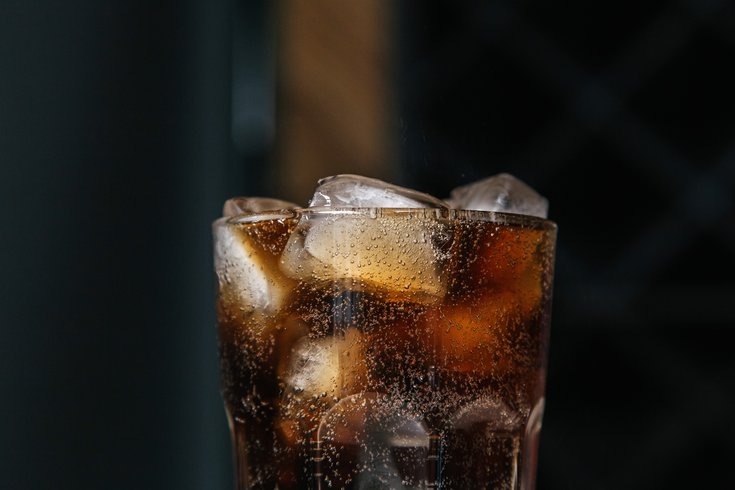
July 11, 2023
 Madalyn Cox/Unsplash.com
Madalyn Cox/Unsplash.com
Prebiotic sodas like Olipop tout themselves as healthy alternatives to traditional soft drinks because they contain less sugar. But health experts say more research is needed to verify claims that they benefit gut health.
For people searching for ways to improve their gut health and to consume more fiber, prebiotic sodas may seem like an easy, tasty way solution.
Prebiotic sodas like Poppi and Olipop are recent additions to the wellness market, and they've gained reputations as healthy alternatives to traditional soft drinks like Coca-Cola, Pepsi and Dr. Pepper. These sodas replicate the flavors of regular soda while reducing added sugars and adding ingredients to feed beneficial gut bacteria.
Poppi, which was featured on ABC's "Shark Tank," claims to provide prebiotic benefits and support blood sugar regulation and cholesterol management by using apple cider vinegar as an ingredient. And Olipop says its blend of botanicals and plant fibers support the gut biome, too.
Both brands, as well as most other prebiotic sodas, claim to help improve the function of the gut microbiome and boost digestive health. But health experts are not convinced that prebiotic sodas provide reliable health benefits, saying more research is needed.
"Our gut microbiome starts to develop in the very early stages of life, and each person has a unique bacterial footprint," Dr. Drew Chiesa, a gastroenterologist at Jefferson Health, said in May. "No one's gut microbiome is the same. So what works for one person may not work for another. That being said, if you're experiencing digestive issues, it's important to talk to your health care provider. They can consult you on your lifestyle and help determine if your body could benefit from additional prebiotics and probiotics."
Probiotics and prebiotics are often used interchangeably, but the two work together to improve gut health issues and maintain healthy digestion. Probiotics like yogurt, sauerkraut, kombucha and kimchi add microbes to the microbiome, improving the balance of bacteria in the gut. Prebiotics help the bacterium already in the microbiome by giving them the foods they like, according to Mayo Clinic. These are primarily fibrous foods like flax seed, bananas, garlic, oats and sweet potatoes.
A healthy gut microbiome does more than ease digestion. Gut health has been linked to a lower risk of depression and anxiety, a stronger immune system and potentially easier weight loss. About 95% of Americans aren't meeting recommendations for fiber intake; eating prebiotic-rich foods can help improve fiber intake and promote digestion.
The benefits of prebiotics are wide-ranging, helping everything from bowel movements to appetite suppression, according to the Cleveland Clinic. But researchers are still working to determine how food sources for the gut microbiome work.
Health experts say eating a balanced diet is a better way to add fiber and to ensure a healthy digestive system than turning a prebiotic sodas. But they say the prebiotic sodas may help people kick a Coca-Cola habit.
"Using a prebiotic soda to ween off sugary soda could be a healthy step," Samantha Cassetty, a registered dietitian, told Better Homes & Gardens. "The healthiest diets are low in added sugars and alternative sweeteners, so if you're drinking a prebiotic soda and consuming several other sources of alternative sweeteners, you should consider reducing your reliance on those sweeteners. Don't be surprised if you get crampy after drinking a prebiotic soda with nine grams of fiber."
A small number of studies have found prebiotics in food and supplements can help regulate gut inflammation, alleviate constipation and boost overall digestive health. For instance, a 2018 study involving 44 people with gastrointestinal disorders that caused flatulence found the use of a prebiotic supplement helped reduce symptoms.
There also is preliminary research that suggests prebiotics may help strengthen the immune system, though experts caution that more research is needed. The health benefits of currently available prebiotic and probiotic products have not been conclusively proved, according to Mayo Clinic.
Though prebiotic sodas are healthier options than traditional sodas, eating a balanced diet that is rich in fiber may provide more benefits for gut health and digestion, according to Healthline.
"As public attention to the importance of a healthy gut continues to grow, companies have also begun to fortify prebiotics into various beverages, breakfast cereals or snack foods," Whitney Linsenmeyer, a spokesperson for the Academy of Nutrition and Dietetics, told Everyday Health last year. "Prebiotic beverages will never replace a balanced diet rich in vegetables, fruits and whole grains, but can be a fine addition to your overall beverage intake when you're looking for something other than water, especially if you're using them to kick a soda habit."
Eating more fiber is not recommended for some people, including those with irritable bowel syndrome and other gastrointestinal diseases. People who are on a low-fiber diets should opt to introduce fibrous foods slowly in order to avoid gas and bloating.
Since many prebiotic sodas are low in sugar, they often contain sugar substitutes to maintain a sweet flavor or offset other ingredients that may taste bitter. Artificial sweeteners or colors may make the stomach upset, so it's important to read the label and check out the ingredients before you try a health-related food trend.